Israel Independence Day: Celebrating Yom HaAtzmaut
The Fellowship | May 1, 2024
When Is Israel Independence Day?
In 2024 Israel Memorial Day, Yom HaZikaron, begins at sundown on Sunday, 12 May, and ends at nightfall on Monday, 13 May. The country immediately moves into a day of great celebration for Yom HaAtzmaut, Israel Independence Day. It was on this date, the fifth day of the Hebrew month Iyar, of the state of Israel was formally established, as members of the provisional government read and signed a Declaration of Independence in Tel Aviv.
Birth of a Nation . . . and Rebirth of a Homeland!
The LORD appeared to us in the past, saying:
“I have loved you with an everlasting love;
I have drawn you with unfailing kindness.
I will build you up again,
and you, Virgin Israel, will be rebuilt.
Again you will take up your timbrels
and go out to dance with the joyful. — Jeremiah 31:3-4
What is Yom HaAtzmaut?
Yom HaAtzmaut, as it is known in Hebrew, is a day of jubilation—a day for Jews to mark the re-establishment of their sovereign nation after generations of exile and to celebrate the history and accomplishments of the modern state of Israel.
Events To Commemorate Yom HaAtzmaut
State Ceremony at Mount Herzl
The official state ceremony at Mount Herzl in Jerusalem marks the beginning of Yom HaAtzmaut. This event includes the lighting of twelve torches, representing the twelve tribes of Israel, by twelve Israeli citizens who have made significant contributions to the country.
Fireworks and Family Gatherings
As night falls, fireworks light up the sky in cities across Israel. Families and friends gather for barbecues (mangal), which are a popular tradition. Parks and beaches are often filled with people celebrating, enjoying food, music, and each other’s company.
Public Events and Performances
Concerts and Street Parties: Cities and towns host concerts, dance performances, and street parties. These events feature Israeli music and showcase the country’s diverse cultural heritage.
Air Force Flyovers: The Israeli Air Force (IAF) performs flyovers across the country, a much-anticipated spectacle. The flyovers symbolize the strength and freedom of the Israeli state.
Religious Observances
Special prayers and liturgical additions, such as psalms expressing gratitude and joy, are recited in synagogues.
Educational Activities
Israeli schools host ceremonies and educational programs, emphasizing the history and significance of Israel’s independence. These programs often include singing patriotic songs, storytelling, and artistic performances.
Jewish Communities Worldwide
Jewish communities around the world celebrate Yom HaAtzmaut, often with gatherings, cultural events, and educational activities, reflecting the global connection to Israel.
The History Behind Israel Independence Day
On May 14, 1948, the fifth day of the month of Iyar on the Jewish calendar, Jewish leaders gathered in Tel Aviv to sign the Declaration of the Establishment of the State of Israel—Israel’s Declaration of Independence. This extraordinary document states, “By virtue of our natural and historic right and on the strength of the resolution of the United Nations General Assembly, [we] hereby declare the establishment of a Jewish state in Eretz-Israel, to be known as the State of Israel.”
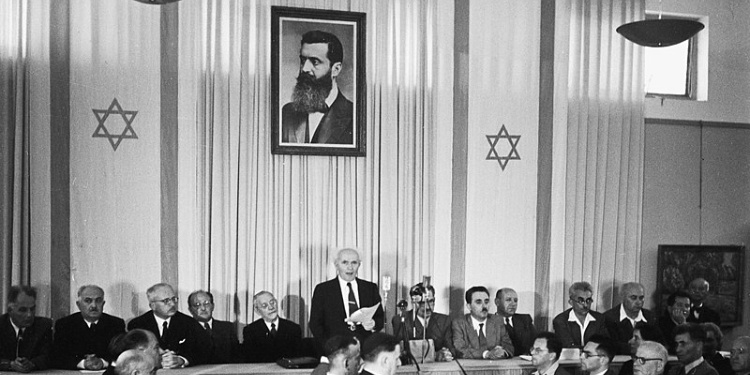
With this bold declaration, the modern state of Israel was born. And so it is that every year at this time Israel Independence Day is observed.
How the Jewish Nation was Reborn
Following World War II, Britain maintained its policy of limited immigration in an attempt to appease the Arab world. Zionist groups organized illegal immigration, and small boats carrying homeless, paper-less Jews arrived on the shores of Palestine. These Jews, survivors of the Holocaust, were looking to start over again in their biblical homeland; however, thousands of these illegal immigrants were denied entry to Palestine and sent to Cyprus internment camps.
They waited there for years, in the hopes of eventually being allowed into their homeland. The Jewish population, incensed over Britain’s actions, especially in light of the depth of the tragedy of the Holocaust, began to retaliate against British rule. The resistance culminated in the 1946 bombing of the British headquarters, which had been housed in the King David Hotel. However, the resistance crumbled after the bombing, due to international outrage and controversy and condemnation within the Zionist community. Over 100,000 Jews were arrested and interrogated. After this debacle, Great Britain decided to hand over the question of the Jewish state to the United Nations.

The U.N. appointed a committee, the Special Committee on Palestine (UNSCOP). On November 29, 1947, the General Assembly of the U.N. voted—with thirty-three countries in favor, thirteen against, and ten abstaining—to partition Palestine into a Jewish state and an Arab state, with Jerusalem remaining under U.N. control. The Partition Plan detailed its non-binding recommendations for the state borders. The Jewish state would consist of the land stretching from Haifa to Rehovot, the Eastern Galilee, and the Negev, including Eilat.
The Arab land would include the Western Galilee, the town of Acre, the Samarian and Judean highlands, and the southern coast from Ashdod through the Gaza Strip. The land given to the Jews included the areas heavily populated with Jews; the Arab lands consisted of areas with mostly Arab populations. The Arabs received most of the water sources. The Jews received a bigger percentage of Mandatory Palestine, to accommodate for projected growth in immigration, but much of that was the Negev, which was not arable.
War from the Outset
Immediately following the UN decision, the Arab States declared that any attempt to construct a Jewish state within Palestine was tantamount to war, and they responded in kind. As the British forces slowly withdrew, a war broke out between the Jewish and Arab communities within Palestine.
Though at first the Arab army had the advantage, as the fighting continued, it became clear that the Jews, who were better organized and better financed due to their own government and taxation system, were not going to succumb easily.
As the Jewish army, led by the Palmach (the fighting force of the Haganah) began to overpower their Arab adversaries, Palestinians began to leave in droves, fearing Jewish revenge. Before the official declaration of an Israeli state, over 200,000 Arabs had fled. Most of them, anticipating an Arab victory, planned to return.
A New State is Formed
On May 14, 1948, after the last of the British forces left Mandatory Palestine, David Ben-Gurion declared the creation of the state of Israel. The new state was recognized immediately by U.S. President Harry S. Truman and Soviet leader Joseph Stalin. The neighboring Arab countries—Egypt, TransJordan, Syria, Lebanon, and Iraq—immediately rejected the state and declared war, adding the forces of actual countries to what had previously been only a “civil” war between Arabs and Jews.
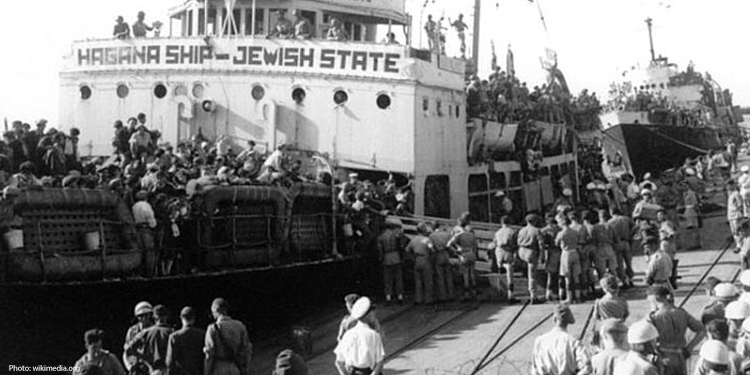
Despite the tremendous odds favoring the Arab forces, both in terms of numbers and military might, Israel miraculously drove off the attacking enemies and thwarted their attempts to destroy the fledgling Jewish state. According to the terms of the agreement, Israel reconquered much of its land—approximately 50 percent more than had been allotted to the Jews in the UN Partition Plan. Egypt gained control of the Gaza Strip, and Jordan occupied the West Bank.
Take our quiz on Yom HaAtzmaut to discover how much you have learned!
Extending the Hand of Friendship
From the very beginning, Israel extended a hand of friendship to neighboring states, encouraging them, as Israel’s Declaration of Independence puts it, to “establish bonds of cooperation and mutual help with the sovereign Jewish people.” Despite this, most of Israel’s neighbors still do not recognize the Jewish state to this day. Even in the West, with its values of democracy and liberty—values fully embraced by Israel—her legitimacy is routinely questioned in academic circles, on newspaper op-ed pages, and even in some churches. Seventy-plus years after its birth, it seems Israel is still the only nation on earth that is continually called on to justify its existence.
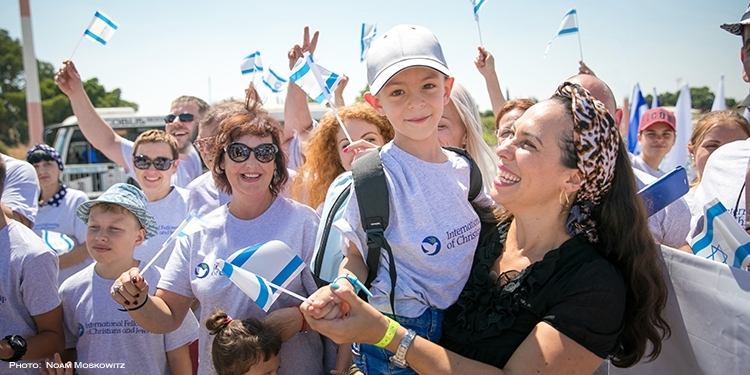
For Israelis and friends of Israel—indeed, for any fair-minded person who values democracy and freedom—Israel Independence Day should be, first and foremost, a day for celebration. On this day, let’s thank God for a nation that stands as a beacon of democracy in the midst of authoritarian regimes, for a nation where every day scientific and technological advances are made that benefit the entire world, and for a nation that, since its inception, has worked to fulfill the biblical promise, “Nations will come to your light, and kings to the brightness of your dawn” (Isaiah 60:3).
Yom HaZikaron, Israel Memorial Day
In Israel, Yom HaZikaron, Israel’s Memorial Day, immediately precedes Yom HaAtzmaut, Israel’s Independence Day. The two holidays, although very different in how they are celebrated, are linked in spirit. The message is simple: All Israelis owe the independence and very existence of the Jewish state to the soldiers who sacrificed their lives for it. You cannot have one day without the other.
Yom HaZikaron is a somber remembrance of all the men and women who made the ultimate sacrifice of their lives to help form the new nation and to keep it alive over the past 73 years, as well as all the victims of terror attacks.
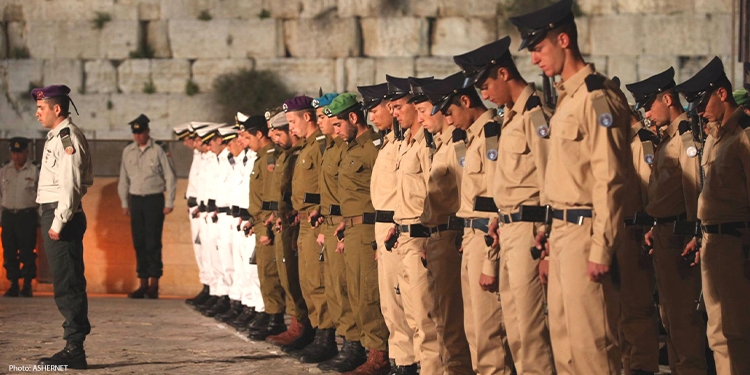
For 24 hours, all places of public entertainment—places like movie theaters and restaurants—are closed. The most noticeable feature of the day is a siren which is sounded twice throughout the country, during which the entire country comes to a standstill for a two-minute moment of silence. The first siren is sounded at the beginning of Yom HaZikaron, which begins at sunset on April 14, and the second at 11 a.m. before the public recitation of prayers in the military cemeteries.
A Very Personal Day
Almost every high school in Israel has a “memorial corner” with the photos of the school graduates who fell in battle or while on military duty. Some high schools stage their own Yom HaZikaron ceremonies and invite the families of the fallen graduates to participate. The unique atmosphere of the day is enhanced by the sight of teenagers and children, all dressed in white shirts and blue pants or skirts, on their way to school, and thousands of soldiers in uniform on their way to the military cemeteries.
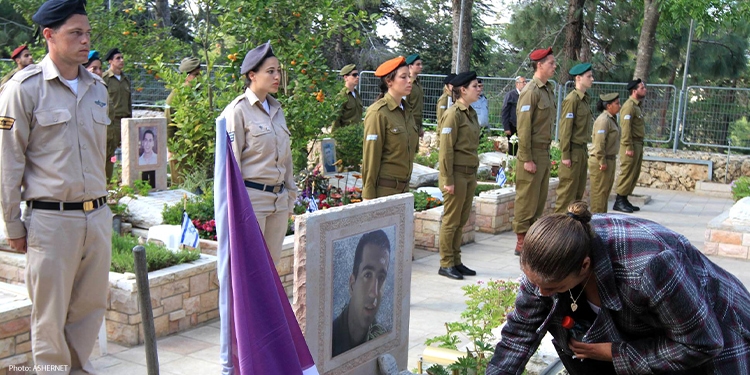
Nearly everyone in Israel knows someone who has lost a loved one in service to their country, and for most Israelis, Israel Memorial Day is a very personal day. The Fellowship’s Ami Farkas shares a story about his neighbor who lost a son in the 1982 Lebanon War.
U.S.-Israel Relationship: Ties that Bind
While Israel’s Arab neighbors reacted with hostility to the founding of the Jewish state, the U.S. became the first nation to recognize Israel. It is instructive to remember that the man primarily responsible for this was a devoted Christian—President Harry S. Truman.
In Truman’s administration, there were those who spoke forcefully against U.S. recognition of the new Jewish state. One of these, Secretary of State James Forrestal, summed up this viewpoint by saying, “There are thirty million Arabs on one side and about six hundred thousand Jews on the other. It is clear that in any contest, the Arabs are going to overwhelm the Jews. Why don’t you face up to the realities? Just look at the numbers!”
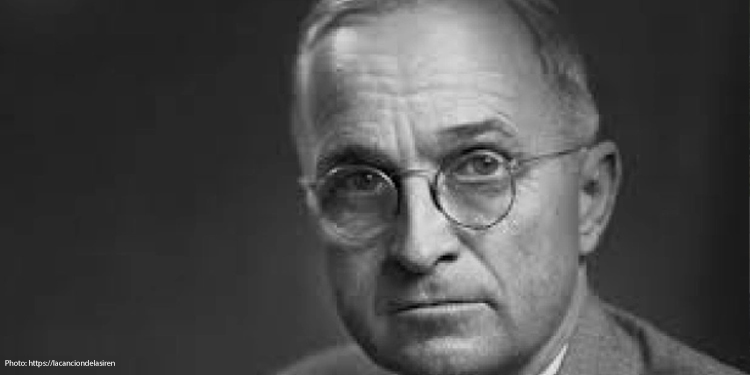
Harry Truman was not without his faults. He occasionally displayed in his private correspondence some of the anti-Semitic prejudices that were all too prevalent at that time. But, ultimately, it is to his everlasting credit that, as far as the right of Israel to exist was concerned, Truman was unimpressed by “the numbers.”
A Student of the Bible
In his memoirs, Clark Clifford, who was special counsel to Truman, remembers Truman’s strong counterpoint to Forrestal’s position: “From [Truman’s] youth, he had detested intolerance and discrimination. He had been deeply moved by the plight of the millions of homeless of World War II, and felt that alone among the homeless, the Jews had no homeland of their own to which they could return.”
As a Christian, Truman had other reasons to support the Jews’ return to their homeland. Clifford continues, “[Truman] was a student and believer in the Bible since his youth. From his reading of the Old Testament, he felt the Jews derived a legitimate historical right to Palestine, and he sometimes cited such biblical lines as Deuteronomy 1:8: ‘Behold, I have given up the land before you; go in and take possession of the land which the Lord hath sworn unto your fathers, to Abraham, to Isaac, and to Jacob.’”
Truman never regretted his decision to recognize the Jewish state—a move he made just eleven minutes after Israel declared its independence. “I had faith in Israel before it was established, I have faith in it now,” he said in 1952. “I believe it has a glorious future before it—not just another sovereign nation, but as an embodiment of the great ideals of our civilization.”
Take our quiz on America’s special bond with Israel!
Stimulate your brain with our word search and crossword puzzles on Israel Independence Day!
